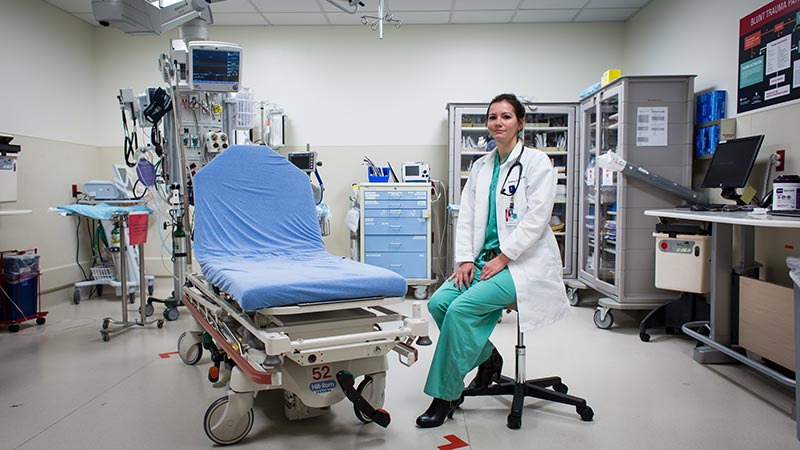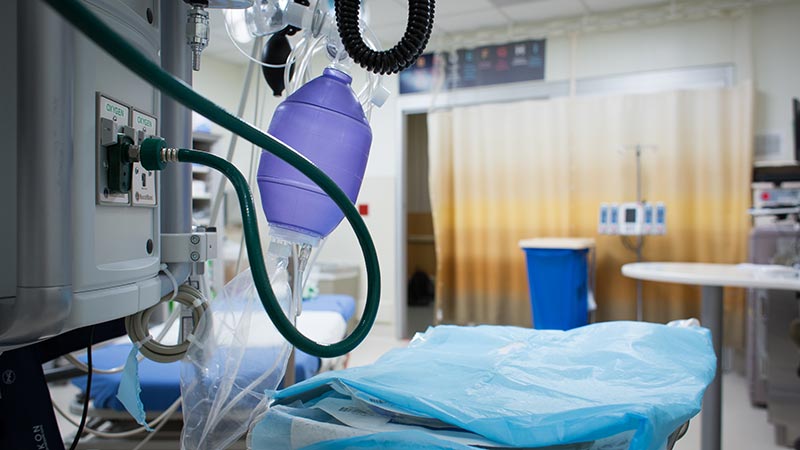“Health care is a business, but people are not iPads,” says Roberta Capp, one of the 2016 winners of the Vilcek Prize for Creative Promise. “So how do you put that human aspect back into the health care business?”
This is a question Roberta struggles with, as both an emergency-department physician and an assistant professor of emergency medicine at the University of Colorado School of Medicine. As a doctor, Roberta sees patients at a blistering rate; on average, the University of Colorado Hospital logs about 110,000 emergency medical visits each year, and Roberta sees 25 to 30 patients per shift.
“In one room, I can have somebody whose heart has stopped and we’re doing CPR and we’re intubating and we’re pushing meds, and in another room, I could have someone with a sprained ankle or a belly pain,” Roberta says. “We’re very busy.”

She noticed, however, that not all patients in the ED were in need of emergency care. About 60% of ED patients were insured through Medicaid, and since many primary care physicians do not accept Medicaid, such patients often head to the ED for conditions that could have been treated—or, in some cases, avoided—if they had better access to primary care.
To reverse this trend, Roberta started a pilot program that assigns Medicaid patients to “navigators”—volunteers who help them connect the dots between Medicaid providers, nonprofit services, and government-funded resources. “It’s difficult to navigate the health care system in general, but for patients that have Medicaid or no insurance, it’s even harder,” says Roberta. “It’s making 20 different phone calls instead of one to get to the right person.”
And these hindrances exist on top of other, more immediate concerns that people living in poverty face, such as securing shelter, food, and child care. Too often, health care takes a backseat, although in some cases, like cancer and heart conditions, early detection and treatment can mean the difference between life and death. The preliminary results of Roberta’s patient navigator system provide hope, though: The pilot found a 20% reduction in ED use and a 50% reduction in hospital admissions, translating into over $1 million in savings.
Roberta also noted that a sizable number of return visits to the ED were due to medical errors and misdiagnoses. She developed an algorithm, IMPAS (Improving Patient Safety), that identifies cases likely to be misdiagnoses, and reviews them monthly with an interdisciplinary team of doctors, nurses, pharmacists, and others, to address systemic problems and increase efficiency. The algorithm is currently being used in four sister hospitals and could be deployed in a larger context in the future.

Born in Brazil, Roberta has always been driven by her love for science and her desire to help people. She recalls trying to develop a cure for HIV at the age of 10, after learning about the devastating effects of the virus; although she was told that “grown-up scientists” were already working on it, her drive to help people remained, fortunately, unquenched.
She moved to Florida with her sister and mother at the age of 14. Despite hardships—the family spoke little English, worked as housekeepers, and slept on the floor—Roberta remained an optimist, working three jobs throughout her undergraduate studies and earning 18 scholarships to fund her education.
Torn between her desire for the human aspect of bedside healing and the chance to “leave something behind” as a bench-side researcher, Roberta decided to do both: She completed her medical degree at Harvard Medical School before enrolling in the Robert Wood Johnson Clinical Scholars Program at Yale for her Master of Health Science.
Now, with her expertise in both medicine and public health, she hopes to create policies that ensure equitable access to health care. “That’s what I hope medicine will get to, that everybody will have access,” she says.